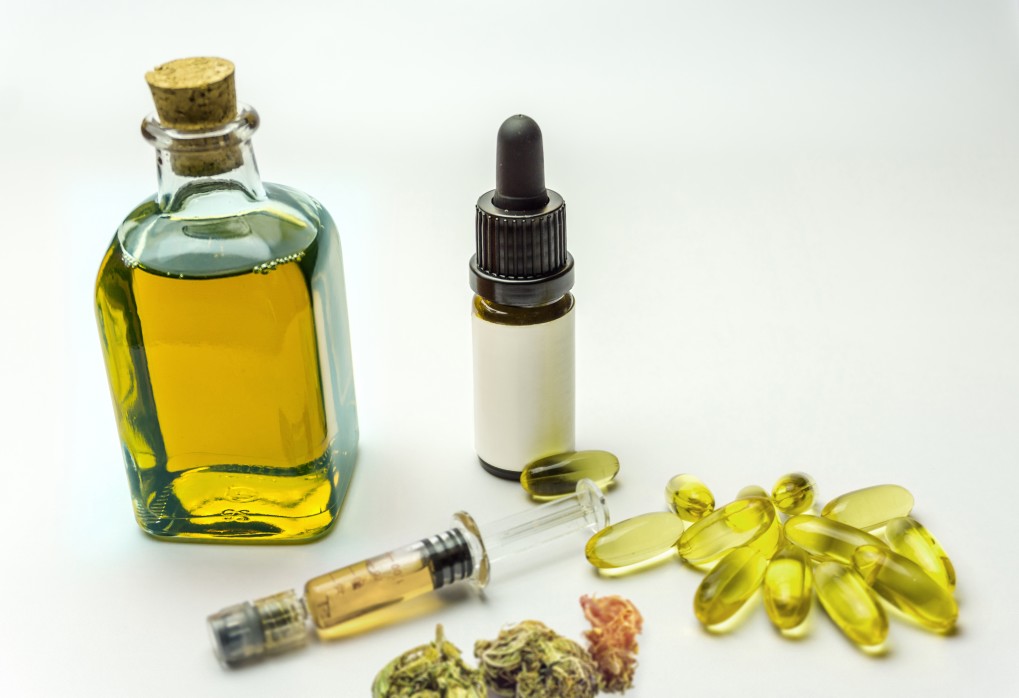1. Relieves pain and inflammation
Among the general CBD benefits, natural pain relief is high on the list. There is evidence that cannabinoids may prove useful in modulating pain by inhibiting neuronal transmission in pain pathways.
A 2012 study published in the Journal of Experimental Medicine found that CBD significantly suppressed chronic inflammation and neuropathic pain in rodents without causing analgesic tolerance.
Researchers suggest that CBD and other non-psychoactive components of marijuana could represent a new class of therapeutics for the treatment of chronic pain.
According to a 2007 meta-analysis performed in Canada, the combination of CBD and THC oral spray was found to be effective in treating neuropathic pain as well as multiple sclerosis, which can be debilitating for 50 to 70 percent of MS patients.
2. Has antipsychotic effects
Research shows that CBD benefits produce antipsychotic effects. It appears to have a pharmacological profile similar to that of atypical antipsychotics, as seen in animal studies using behavioral and neurochemical techniques.
In addition, studies show that CBD prevents experimental psychosis and is effective in open case reports and clinical trials in patients with schizophrenia with a remarkable safety profile.
3. Reduces anxiety
Studies with animal models of fear and with healthy volunteers clearly show an anxiolytic effect of CBD. Cannabidiol has been shown to reduce anxiety in people with social anxiety disorder, and researchers suggest it could also be effective for panic disorder, obsessive-compulsive disorder, social anxiety disorder, and post-traumatic stress disorder.

A 2011 study aimed to compare the effects of a simulative public language test on healthy control patients and treatment-eligible patients with social anxiety disorder.
A total of 24 never-treated patients with social anxiety disorder received either CBD or placebo 1.5 hours before the test.
The researchers found that pre-treatment with CBD significantly reduced anxiety, cognitive impairment, and discomfort in their speech performance, and significantly decreased attention in anticipation of their speech.
The placebo group showed higher levels of anxiety, cognitive impairment, and discomfort.
4. Helps against cancer
Several scientific reports show that CBD benefits have antiproliferative, pro-apoptotic effects that inhibit the migration, adhesion, and invasion of cancer cells.
A study published in 2006 in the Journal of Pharmacology and Experimental Therapeutics found for the first time that CBD strongly and selectively inhibits the growth of various breast tumor cell lines and is significantly less effective in non-cancer cells.
In 2011, researchers shed light on the cellular mechanism by which CBD induces cell death in breast cancer cells. They showed that CBD induced concentration-dependent cell death in both estrogen receptor positive and estrogen receptor negative breast cancer cells.
They also found that the effective concentrations of CBD in tumor cells had little effect on non-tumorigenic mammary cells.
CBD behaves like a non-toxic compound, and studies show that doses of 700 milligrams per day for 6 weeks did not show any obvious toxicity in humans, suggesting it can be used for longer treatment.
Not only do the data show that CBD has benefits, including effectiveness against breast cancer cells, the data also suggest that it can be used to inhibit the invasion of lung and colon cancer, and it possesses anti-tumor properties in gliomas and has been used to treat leukemia.
5. Relieves nausea
Cannabis has been used to suppress nausea and vomiting for centuries. Research has found that among more than 80 cannabinoid compounds found in marijuana, both the intoxicating THC and the non-intoxicating CBD help eliminate nausea and vomiting in animal studies.
A 2012 study published in the British Journal of Pharmacology found that CBD had benefits, including anti-nausea and anti-emetic effects, when given to rats. The researchers found that CBD works in a two-phase manner, meaning that in low doses it suppresses toxin-induced vomiting, but in high doses it increases nausea or has no effect.
6. May treat seizures and other neurological disorders
A 2014 survey by researchers at Stanford University was presented to parents of a Facebook group who want to share information about the use of cannabidiol-fortified cannabis to treat their child’s seizures. Nineteen responses met the inclusion criteria for the study: a diagnosis of epilepsy and current use of CBD-enriched cannabis.
The average number of anti-epileptic drugs tested prior to using CBD cannabis was 12.
Sixteen (84 percent) of the 19 parents reported a reduction in their child’s seizure frequency while using CBD cannabis.
Of these, two (11 percent) reported complete seizure freedom, eight (42 percent) reported a greater than 80 percent reduction in seizure frequency, and six (32 percent) reported a 25-60 percent reduction in seizure frequency.
Other positive effects included increased alertness, improved mood, and better sleep; while side effects include drowsiness and fatigue.
Later in 2014, researchers reported preliminary results from a study of children with treatment-resistant epilepsy in an expanded compassionate use program.
Patients were given a purified 98 percent oil-based CBD extract called Epidiolex, which is manufactured by GW Pharmaceuticals.
After three months of treatment, 39 percent of the 23 patients had a seizure reduction of more than 50 percent and a median reduction of 32 percent.
These preliminary results support the animal studies and survey reports that CBD may be a promising treatment for treatment-resistant epilepsy and is generally well tolerated in doses up to 25 milligrams per kilogram of body weight.
7. Reduces the incidence of diabetes
A 2006 study found that CBD treatment significantly reduced the incidence of diabetes in non-obese diabetic mice from an incidence of 86 percent in untreated mice to an incidence of 30 percent in CBD-treated mice. CBD benefits also showed a significant reduction in plasma levels of pro-inflammatory cytokines. A histological examination of the pancreatic islets of the CBD-treated mice showed significantly reduced insulitis.
In 2013, the American Journal of Medicine published a study highlighting the effects of marijuana on glucose, insulin, and insulin resistance in adults in the United States. The study included 4,657 adult men and women from the National Health and Nutrition Survey from 2005 to 2010.
Of the participants, 579 were current marijuana users and 1,975 were former users. The researchers found that current marijuana use was associated with a 16 percent lower need for insulin while fasting. They also found significant associations between marijuana use and smaller waist sizes; a factor linked to the occurrence of diabetes symptoms.
8. Promotes cardiovascular health
A 2013 study published in the British Journal of Clinical Pharmacology reports that CBD protects against the vascular damage caused by a high glucose environment, inflammation, or the induction of type 2 diabetes in animal models; In addition, CBD has been shown to reduce the vascular hyperpermeability (which leads to leaky gut) associated with such environments.

